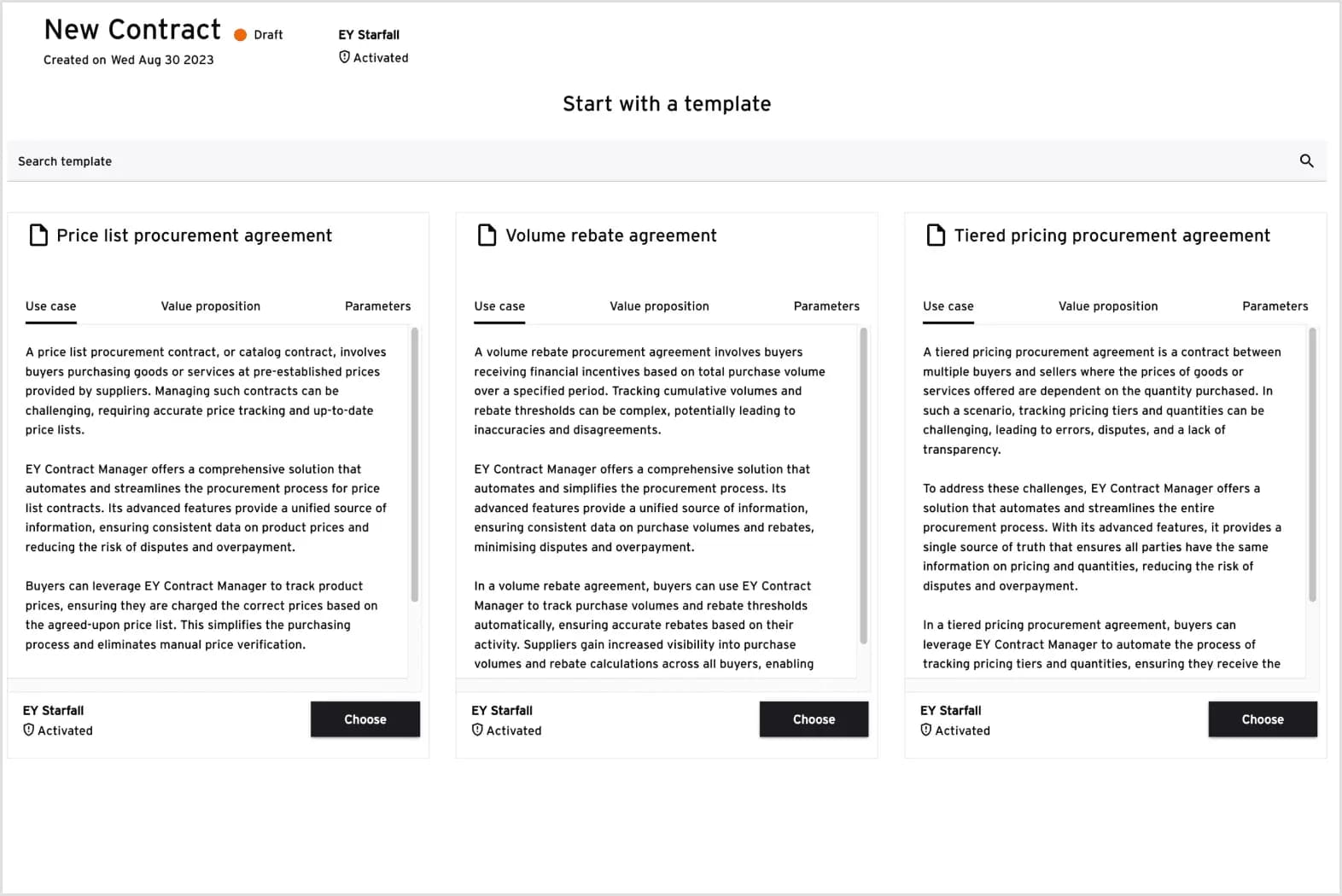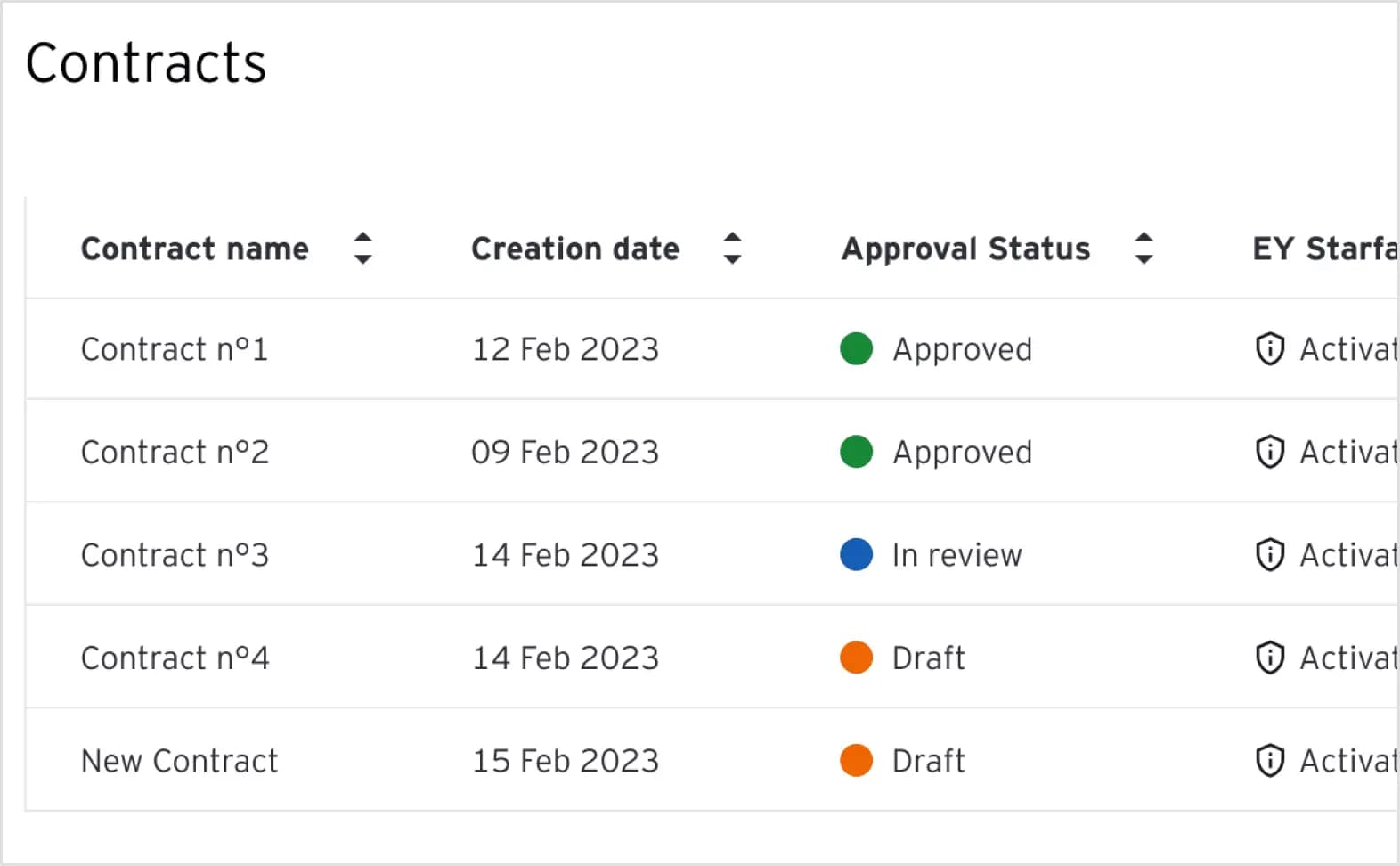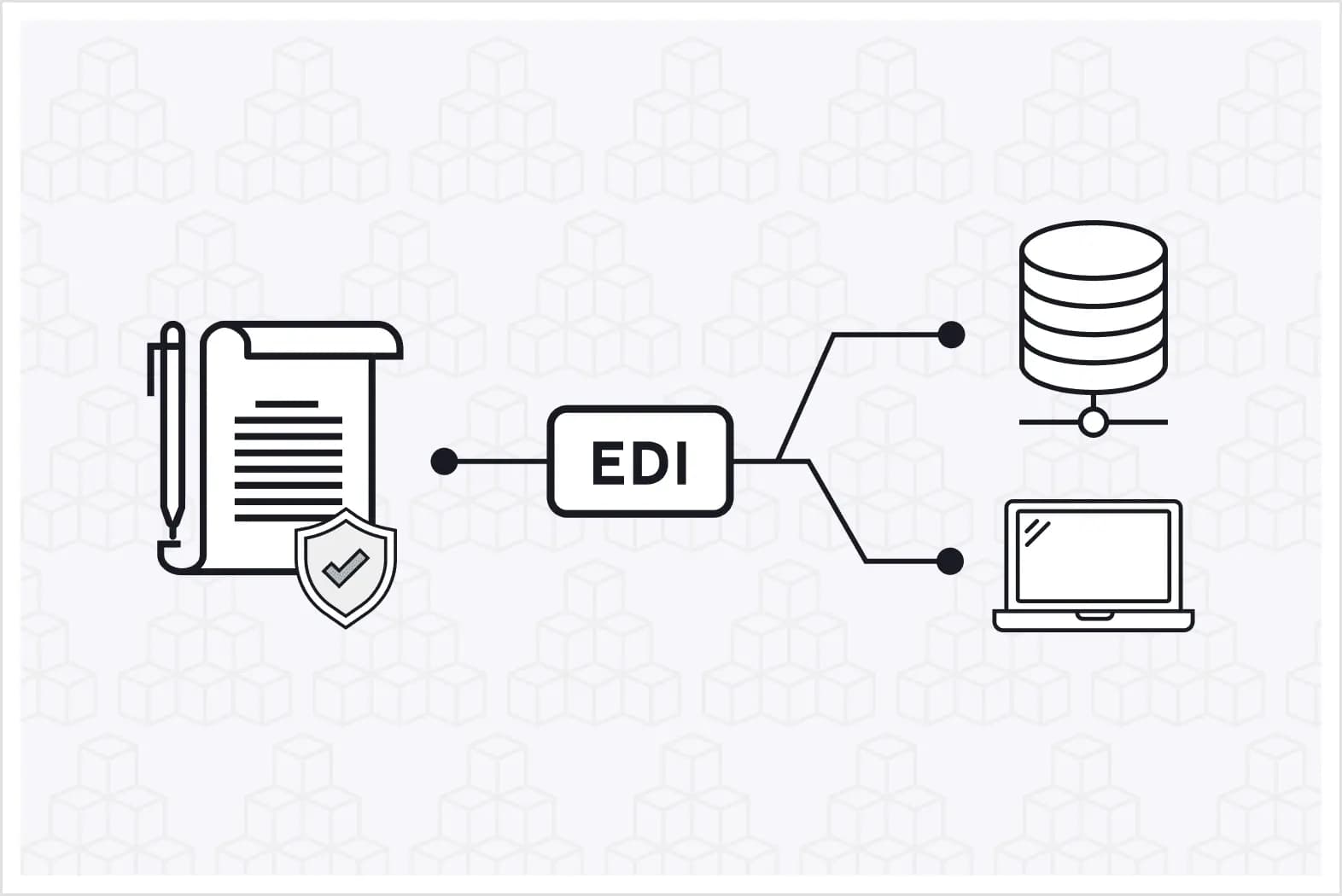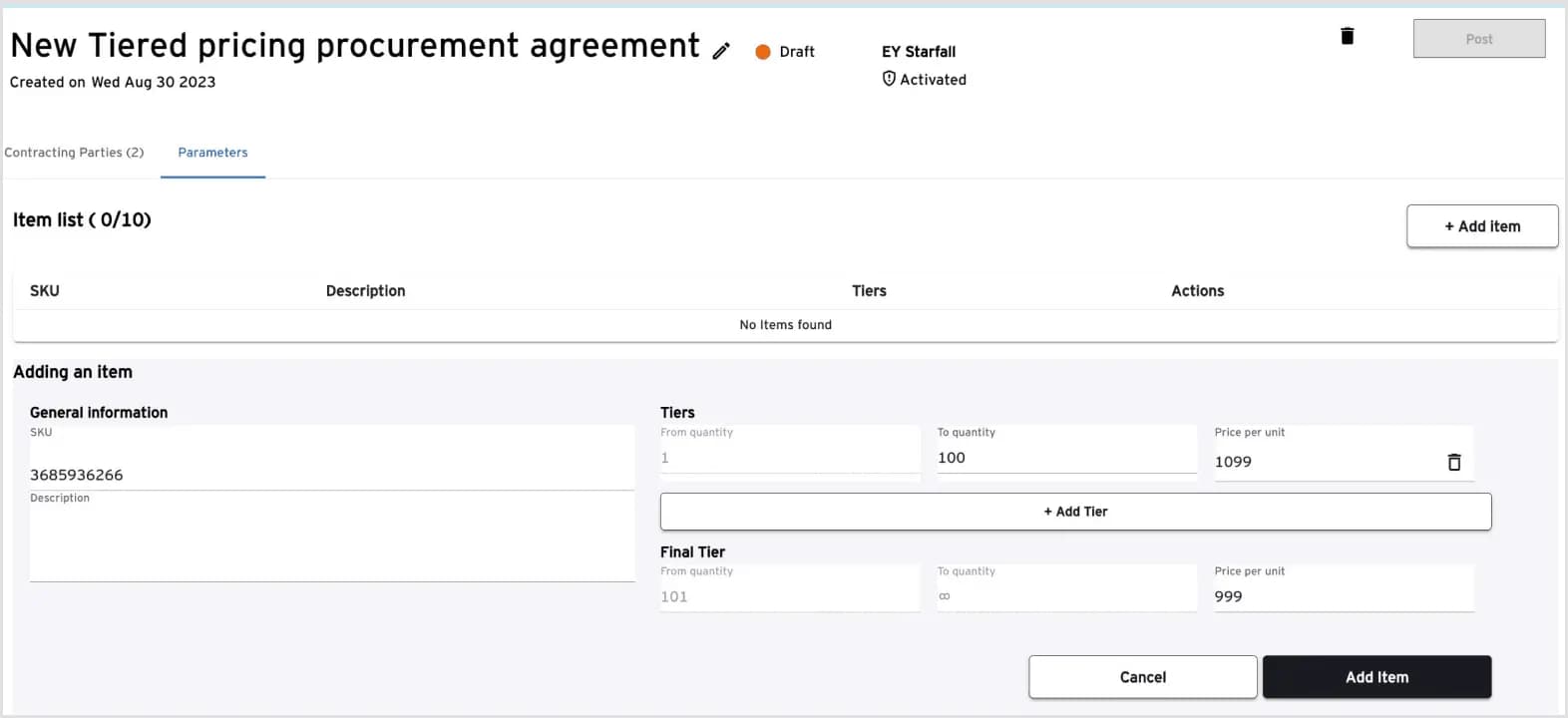EY OpsChain Contract Manager
Revolutionize how you manage contracts using blockchain technology.
As digitally enabled businesses scale globally, so do their contractual engagements. Often contracts are signed only to have important details forgotten when the contract is implemented. EY OpsChain Contract Manager (OCM) revolutionizes how enterprises help manage their contracts by harnessing privacy-enabled blockchain technology to streamline processes and enhance transparency.

Why EY OpsChain Contract Manager?
Efficient contract management
OCM simplifies the contract management process. By removing intermediaries and Increases organizational efficiencies, OCM helps make contract processes fast and cost-effective.
Reduce value leakage
Build contracts that helps to confirm every transaction aligns with the agreed-upon terms, effectively safeguarding against value leakage and that maximum value is derived from every agreement.
Enhanced transparency and trust
OCM helps make sure that every transaction is securely and transparently recorded on a public blockchain. Providing tamper-proof records, giving stakeholders confidence in the integrity of every agreement.
Error mitigation
OCM is designed to alert users of any discrepancies in real-time. By stopping transactions that deviate from the agreed contract criteria, OCM effectively prevents erroneous contract fulfilment, safeguarding the interests of all parties involved.
Contract Wizard

User-friendly interface to assemble contract terms into a customizable business flow.
Streamline the creation of contracts through a no-code interface, helping enable collaborative customization, role definition, event chain design, and external input integration.

Contract Privacy

Using the latest privacy technology across the power of public blockchain.
Implement the power of zero-knowledge proof methodology to help provide critical contract terms, transaction details, and value chain confidential information remain shielded, granting enhanced privacy.

Real-Time Monitoring

Real-time checks
Automatically help reconcile contract terms with real-time checks, monitor policy adherence, and receive instant alerts on discrepancies, while helping prevent transactions not compliant with the contract terms from passing through.

Plug in and play

Experience the ease of integration with API-enabled features, including compatibility with Electronic Data Interchange (EDI) messages. Seamlessly plug into the world of OCM, effortlessly integrating with your existing systems.
Build, test, and deploy directly from the developer environment through the robust API, gaining a full control over your contract management processes.

Dynamic Parameters

Integrates adaptable parameters into contracts.
This allows automatic adjustments to shifting market conditions and other variables. Value: Keeps contracts relevant and equitable over time without manual renegotiation, saving time and preserving the integrity of agreements.

EY OpsChain Contract Manager plans
Basic
Plan for applications with low volume of transactions
Polygon or Ethereum
Private smart contract deployment
External system integration
900 transactions/month
Multiple contract templates
Administrator console for managing API usage
Standard support
US$ 900/month*
* The price includes gas fees when running on Polygon network
Paid monthly / 12 Months subscriptions
Enterprise
Plan for enterprises running high volume of transaction
Polygon or Ethereum
Private smart contract deployment
External system integration
Tailored transactions/month
Multiple contract templates
Administrator console for managing API usage
Standard support
Standard SLA’s
Paid monthly / 12 Months subscriptions
The team
Paul Brody
EY Global Blockchain Leader
Konstantin Nikolaev
EY OpsChain Global Product Manager
Thought Leadership
Explore what EY leaders have to say and learn how blockchain could help your organization.
Products that might interest you

The EY OpsChain ESG solution provides a trusted platform for emissions and carbon credit traceability using tokenization technology.

Providing a trusted platform for traceability and transparency across global supply chain ecosystems

Assess the underlying code for alignment with industry standards and leading practices to help increase confidence in blockchain-enabled smart contracts and transactions

